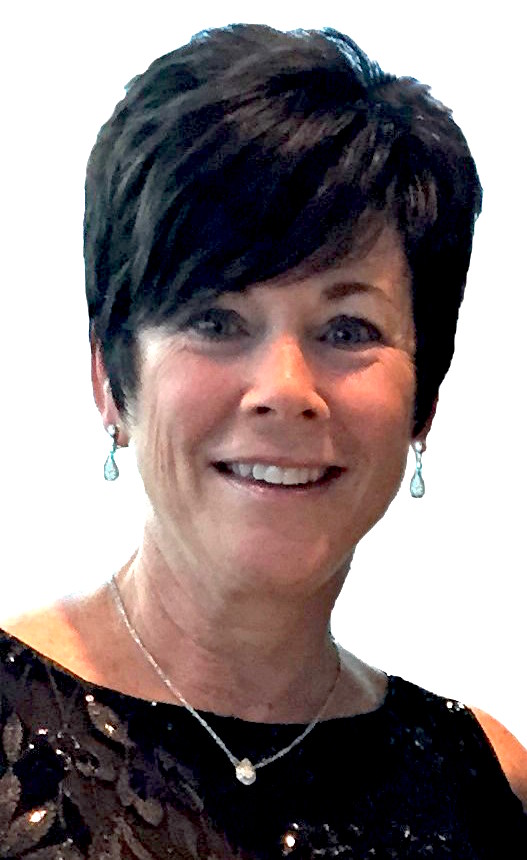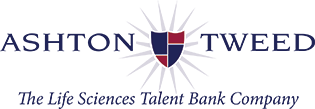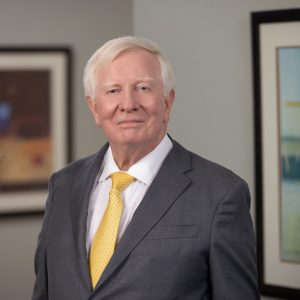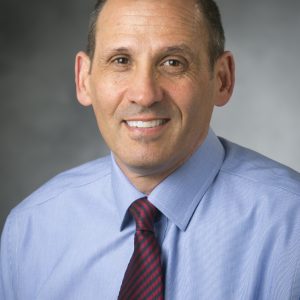CEO Leadership Series: Kathleen P. DeLawrence, Chief Operating Officer, Ability Prosthetics & Orthotics, Inc.

MAKING CONNECTIONS AND SEIZING OPPORTUNITIES
Kathleen P. DeLawrence, Chief Operating Officer of Ability Prosthetics & Orthotics, Inc., has an impressive breadth of experience in the pharmaceutical, life sciences and health care industries.
Ms. DeLawrence logged decades of experience at pharmaceutical companies. In fact, she even started out working at a mom-and-pop pharmacy when she was 15. By the time she left her position as COO at Prism Pharmaceuticals Inc., Ms. DeLawrence had become well-versed in strategic planning, operational management, product launch, marketing and sales operations management and merger integration. Joining Ability Prosthetics & Orthotics, which evaluates, designs and fits patients with custom and off-the-shelf orthotic and prosthetic devices, may not have been the most predictable move, but for Ms. DeLawrence it made perfect sense.
A series of opportunities stemming from introductions to key people and personal experience with the health care industry helped Ms. DeLawrence head in new directions. “My resume is not by design; it’s not like I sat down and put that plan together. I just let life take its path,” she says. “I never take a job unless I’m going to learn.”
In an interview with Ashton Tweed, Ms. DeLawrence discusses the pivots and detours that have advanced her career, why she left pharmaceuticals and how networking has brought her new opportunities:
How did you go from graduating college with a marketing degree to working as a systems engineer at General Electric’s Aerospace Division?
In college I interned at General Electric Aerospace in their finance division in King of Prussia. The division was a big supporter of the Hugh O’Brian Youth Leadership Foundation and its national high school leadership program. Every fall, it recruited students nominated by their high schools and held an event in Philadelphia. As an intern, I was the event manager for a few years, and I ran the program after GE hired me while I was waiting for my security clearances.
GE was hiring hand over fist. And while you were waiting for your clearance, you worked other jobs. Once I secured my clearances, I worked in the systems integration group as an administrator. The management I worked with was so progressive. If we showed potential, they just piled on more and more work. They allowed me to really grow.
Eventually that process afforded me the thrill of being promoted to systems engineer. To be a female, non-technically degreed person and get promoted to systems engineer was a really big deal. That was the first feather in my career cap. As a systems engineer, I learned program management and technical project management. I learned to pay attention to detail without letting it cloud my strategic brain. I learned how to develop strategic plans that are executable. That’s the art I’ve crafted over 25 years.
How did your time at AstraMerck as Executive Director of Commercial Operations add to your skillset?
At AstraMerck I was kind of the internal go-to program manager. If there was a big project, a big integration or big change going on in the company, I was one of two or three people who would get a phone call from the Leadership Team to run the project. So I was responsible for the program office in the integration of Astra into AstraMerck and then helped with the Zeneca merger.
I loved the entrepreneurial spirit at AstraMerck and I knew that was going to change. I had no interest in working in a big corporate pharma mentality like Zeneca had. What I really wanted was to be responsible for the merger integration on the commercial side of the business. I wanted that on my resume. I got the job done and left the company in a really comfortable place. I thought I’d take six months off and recover because the experience had been really intense.
But that didn’t happen. Why not?
I got a call from a friend I knew through running my kids around at school. She said her company, a family-owned business, was looking for someone to run the business. So, I interviewed and we hit it off. I came in as the general manager and was literally handed the reins of the business. The business was sold a year later and then acquired by Cardinal Health.
Coming off of that, a doctor I worked with at AstraMerck, Dr. Warren Cooper, called me about starting a specialty pharma company, Prism Pharmaceuticals, Inc. Of course I said yes; my only ask was that I come in as chief operating officer of the company because I felt I was ready. I wanted to lead all of operations to learn and own manufacturing. Product manufacturing was a final gap that I needed to fill my experience of the product lifecycle.
This experience taught me so much – I could write a book! Raising money – managing the money people you learn quickly that investors sitting around the table may be really good at investing but they haven’t necessarily operated a pharma company! Developing products – stuff happens that you have no control over, yet you learn to manage through the risk. Most importantly, and the most significant learning – the art of collaboration, trust and respect amongst a management team is crucial for success.
How did you transition into the health care industry?
After Prism was sold to Baxter International Inc. in 2011, I was burned out, and planned to take the summer off. My father became very sick and I took advantage of this time to assist my parents and family through his illness. He passed away in December of that year.
What I learned through that experience was how messed up the health care system is from an insurance standpoint. It is such a big and daunting problem in our society that I needed to find a way to get inside and take a bite of it that I could comprehend. It was time to start over in the learning department!
At this point, given my personal experience and reflecting on my career, I really had no interest in being in pharmaceuticals anymore. I felt I’d learned everything I could from pharmaceuticals and the next industry I really wanted to get into was health care delivery.
I wanted to take all I learned and give it away to people who needed help and could leverage my experiences for their success. I knew I wanted to consult with life science entrepreneurs in the region, but where to start?
Then I met Dr. Kathryn Worrilow who built an incredible company called LifeAire Systems. Katy is a Ph.D. scientist who makes babies for a living through in vitro fertilization! She developed an air purification system for her lab and then built a company around her technology to manufacture the system for IVF labs, health care and life science facilities. I met Katy at a point where her company was struggling to commercialize its product into the market. She and I hit it off. We relaunched her product, IVF labs started buying it and investors got interested enough to fund her forward. A new market; another learning and my next transition began.
In the life sciences community, most entrepreneurs—the CEOs and the founders—are typically more scientific than commercial. They’re more focused on the data and the outcome of the product, which isn’t necessarily what the investors are focused on initially. The investors want to make sure you know how to get the product to market and reimbursed. Scientists don’t always think that way unless they’ve done it before.
What attracted you to Ability?
I had my eye on Ability for a couple of years. I had met Ability’s CEO and founder Jeffrey Brandt the year we sold Prism. Jeff was looking for a business coach and we developed a mentor-mentee relationship. I became a board director and evolved into a “working” board director for Ability. Through this process, Jeff asked me to come on board as COO.
I joined Ability and I haven’t looked back. It’s so incredible to be in health care. I’m at a company that has the utmost respect for what I bring to the party, which is so humbling, so wonderful, and allows me to continue setting us up for even more success. We change people’s lives every day, whether we’re putting orthotics in your shoe or we’re giving a child a prosthetic leg because he had a strep infection that went to sepsis and caused an amputation.
I shadow practitioners a couple of times a month. I feel like I’m like Santa’s elf, not that I can do anything clinically but engage the patient and learn about their life story and continue to learn about the technology and products we’re delivering. Our practitioners are making a clinical difference putting smiles on patients’ faces every single day.
What’s your biggest challenge at Ability?
The biggest business challenge in the health care environment is how payors are paying less and less for critical services and patients are being required to pay more and more out of pocket. It’s a paradigm shift that isn’t being effectively communicated to the patient, in my opinion.
But it’s not stopping us from doing what we need to do. We’re very aggressive with the payors. We’ve continually stepped up our game, delivering cutting-edge technologies, garnering reimbursement on behalf of our patients, so we remain a leader in the industry.
Why is networking so important to you?
Networking is my story. I like helping people—it’s at the core of my being. I think keeping your network healthy and cross-fertilizing within your network is really important. In my career, I have never used a headhunter and never had to apply for a job. Everything came to me through relationships.
You have to give to get. That is the single most important part of networking. If somebody reaches out to you to ask for help, you need to give them that help, that phone call, that deliverable, whatever it is. The more you give the faster and easier it will be for you to get in your time of need.
People do not forget a single, simple gesture. You make a connection, you meet for coffee, and you offer to do something for free. Someone might feel like they can’t move something forward with their team. I’m constantly saying, “Hey look why don’t I come in for two hours, I’ll take my personal time, sit down with you and your team and we’ll facilitate a conversation. I’m an outsider and objectivity is really important when you’re trying to solve a problem.”
What is the Life Sciences Collaborative?
The Life Sciences Collaborative is a group of senior leaders and entrepreneurs from all walks of life in life sciences and health care technology. At our core, it’s a monthly breakfast forum where we sit around over coffee and talk about what’s going on in the regional market. We have created the opportunity during these breakfast meetings to allow folks – typically C-level individuals – to talk about a current challenge they are facing. If someone has a burning problem, they just toss it on the table and everyone jumps in with their constructive thoughts and experiences. The meetings we have once a month are just incredible!
Everyone is very respectful of each other. It’s just about sharing. We have no sponsorship, we’re not making any money. The group in King of Prussia has a really robust portfolio of individuals. We typically have 12 to 17 folks every month. The same goes for the group meeting in Princeton. We host an annual event each Spring at the University of the Sciences and one or two networking events during the year.
How have you personally benefited from the Life Sciences Collaborative?
I’ve grown my personal network with some of the coolest people I’ve met in my career. And I learn something new about business every single month just by sitting back and listening. The beauty of watching that kind of garden flourish makes my eyes sparkle.
What career development advice can you offer?
I think people need to learn how to listen thoughtfully. They need to always put themselves in the other person’s shoes before they respond and be thoughtful of their audience. They should really treat people the way they want to be treated. I know that sounds so simple but success doesn’t happen if you’re always looking out for yourself. For me, it’s about being what’s best for the people I’m working with, working my hardest to deliver and being very genuine.
Ashton Tweed would like to thank Kathleen P. DeLawrence for this interview. If your company needs help from members of the Ashton Tweed Life Sciences Executive Talent Bank, we can supply that assistance either on an interim or a permanent basis. Additionally, if you are among the many life sciences professionals affected by the changes in the industry, Ashton Tweed can help you find the right placement opportunity — from product discovery through commercialization at leading life sciences companies — including interim executive positions and full-time placements. In either case, please email Ashton Tweed or call us at 610-725-0290. Ashton Tweed is pleased to continue to present insightful articles of interest to the industry.

Kathleen P. DeLawrence
Kathleen P. DeLawrence, COO of Exton, Pa.-based Ability Prosthetics & Orthotics, Inc., started her career as a systems engineer for GE’s Aerospace Division. Ms. DeLawrence then served as a manager at PriceWaterhouse, where she managed a team that provided business process reengineering for a not-for-profit client. She served as AstraMerck’s Executive Director of Commercial Operations for seven years before moving on to Dover Communications, a Business of Cardinal Health, as Vice President and General Manager. Ms. DeLawrence served at Prism Pharmaceuticals Inc. as Chief Operating Officer for seven years until the sale of the company. Ms. DeLawrence has been the COO of Ability since January 2015 and has been the Board Director since 2014. She is also on the advisory board for the Life Sciences Collaborative, the Board Director for Kerathin LLC and the principal of kpd consulting for startup and entrepreneurial executives. She lives in Collegeville, Pa., with her husband. The couple has two daughters.





